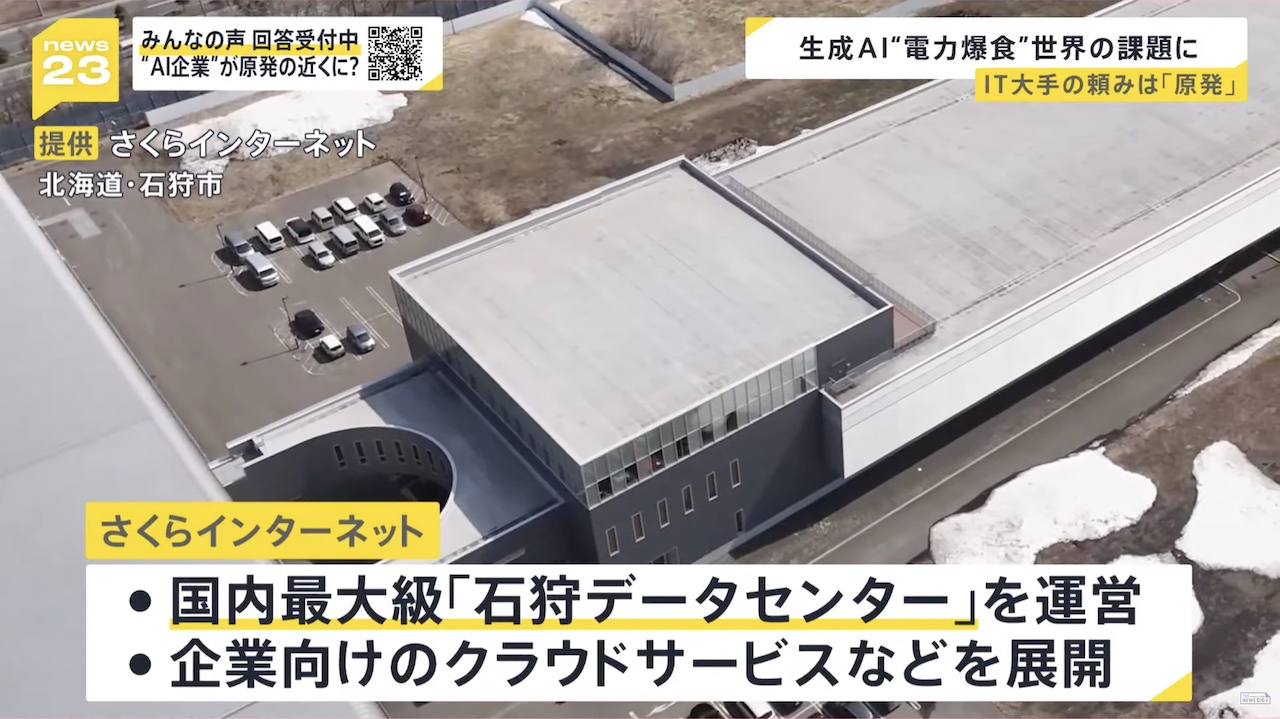TOKYO, Oct 25 (News On Japan) - AI is becoming a hot topic globally, and its development is driving the need for large amounts of electricity. As this demand grows, IT companies are increasingly turning their attention to nuclear power for a reliable and cost-effective energy source. How will Japan navigate its energy policies in this environment?
Japan’s largest cloud service provider, operating one of the country’s biggest data centers, is already taking steps to meet AI's significant energy needs. This company, which set up a data center in the cool climate of Hokkaido to use natural cooling for its servers, now finds AI development and services require roughly 10 times the electricity of traditional servers. As a result, cooling systems for these AI servers must also be significantly expanded. This company, using 100% renewable energy, has even built a solar power plant nearby to help power its data center.
However, as energy needs are expected to surge in the AI era, the Japanese government is working to increase energy independence by focusing on a balanced energy mix that includes nuclear power, renewable energy, and reducing energy consumption. Prime Minister Ishida has stated that nuclear power will play a key role in meeting the skyrocketing electricity demand driven by AI. Meanwhile, in the U.S., major IT companies are increasingly turning to nuclear power for its reliability. Microsoft has announced that it will receive electricity from the Three Mile Island nuclear plant starting in September, and Google has signed a contract to purchase power from a company that develops small nuclear reactors. Amazon has also invested $500 million in a company developing modular nuclear reactors.
In Japan, there are currently four or five inquiries from domestic companies about building data centers near the Sendai nuclear plant in Kagoshima Prefecture. Similarly, Maizuru City in Kyoto, next to the Takahama nuclear plant, is seeing inquiries for land for data centers. Additionally, discussions are underway about the potential restart of the currently shut-down Tomari nuclear plant in Hokkaido, as electricity demand is expected to rise, particularly with the planned construction of a semiconductor factory.
The director of the Institute of Energy Economics, Japan, Masuo, has projected that by the mid-2030s, the growing electricity demand from data centers and semiconductor factories will far exceed supply. This has prompted discussions about restarting the Tomari nuclear plant to meet the increased demand. He emphasized the importance of nuclear power as a stable, carbon-free energy source while ensuring safety remains the top priority.
As the demand for electricity to support AI and other technologies rises, Japan must consider how to provide stable, sufficient energy. Nuclear power is emerging as a critical option globally, and Japan is no exception. However, the director highlighted that public communication regarding nuclear power safety remains insufficient, which may be a significant issue as the country debates its energy future.
Source: TBS















